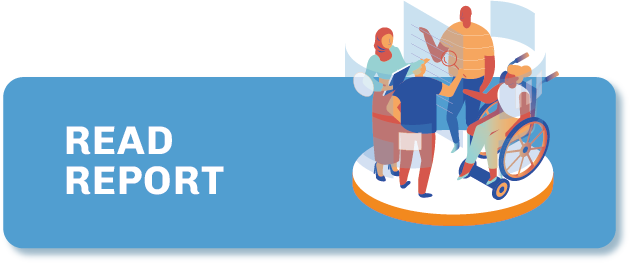Greece
Amid a highly polarised media landscape in which traditional media organisations are owned by a handful of dominant business interests, new independent digital outlets have emerged over the past few years in Greece. These investigative outlets are changing the traditional media landscape of the country by producing journalism in the public interest, covering issues that remain underreported or for which biassed reporting often occurs, such as refugee-related issues, human rights abuses, the accountability of authorities, or the country’s recent spyware scandal.
GENERAL INFORMATION
Press
freedom
ranking
Internet
penetration
POPULATION
Media organisations
in the Directory
TYPE OF COVERAGE

TYPE OF ORGANISATION

GENDER OF FOUNDERS

Press freedom
Press freedom in Greece suffered “serious setbacks” in 2021 and 2022, notes Reporters Without Borders in its Press Freedom Index 2022. Journalists have regularly been hindered in their coverage of issues ranging from refugees and migration to the Covid-19 pandemic, according to the organisation. “The assassination of veteran crime reporter Giorgos Karaivaz in April 2021 remains unsolved, despite the government’s promise of a quick investigation,” it adds. Photojournalists have also been attacked by the police while covering protests.
Meanwhile, the country’s ongoing spyware scandal has made headlines around the world. Revelations that Greek security services had authorised the wiretapping and surveillance of journalists have led to calls for greater transparency and accountability. At the same time, SLAPPs (strategic lawsuits against public participation) and legal threats against individual journalists and media organisations that provide critical reporting have become common phenomena, used by both business interests and government officials alike.
Market structure and dominance
The media market in Greece is “characterised by digital fragmentation”, notes the Reuters Institute for the Study of Journalism in its Digital News Report 2022. “The audience’s attention is divided between many news sources, and the legacy news market has been disrupted by pure-players such as Newsbomb and News247,” says the report. “The majority of news brands in Greece still prioritise page views over building loyal audiences, partly explaining why there is not a culture of payment of online news in Greece.”
The TV news media market is still strong, particularly for older age groups, while publishers – including legacy outlets – are investing mainly in podcasts, adds the report.
How media is funded
Advertising, whether from the private or public sector, remains the dominant source of media revenue. In 2020, there was a big controversy over the disproportionate allocation of state funds to pro-government news organisations with the goal of broadcasting Covid-19 “stay at home” messages. Meanwhile, only 11% of those surveyed for the Reuters Institute’s report pay for online news. Independent investigative outlets are fuelled through grants, subscriptions or a combination of both. In recent years, several alternative digital media outlets have been working to restore the audience’s trust in the media and journalism in Greece.
Seven profiles of digital native media organisations from Greece are included in the directory. Interviews with these outlets show that challenges to media independence and the safety of journalists are systemic in Greece. In particular, there has been a deterioration in press freedom since the liberal-conservative political party Nea Dimokratia’s electoral victory in 2019. The party’s leadership is “obsessed with controlling the message and minimising critical and dissenting voices”, notes Media Freedom Rapid Response in its launch of a report on the challenges for independent reporting in Greece.
Sustainability was the biggest challenge mentioned by all six media outlets during their interviews. Grant funding, fees from assignments, subscriptions, or a combination of more than one revenue model were mentioned as potential solutions, but none of these seem to solve the issues of funding and sustainability.
Funding is not the only challenge faced by independent digital media outlets in Greece. SLAPP suits or other kinds of lawsuits, digital or physical spying, cyber-attacks and online harassment are among the most common challenges faced by journalists in the course of their work.
There is indeed a promising independent media landscape in Greece that has managed to keep citizens informed, providing them with important stories that would not find their way to the public otherwise. However, their work is not without its own difficulties. Sustainability, challenges in engaging readership, deep mistrust of media and journalists by Greek society, and the resistance of dominant legacy media organisations towards innovation all make the media environment in Greece tough to change.
Last updated: December 2022
CREDIT FOR STATISTICS: Press Freedom statistics, RSF Press Freedom Index 2022; Internet penetration and population statistics, from Internet World Stats

